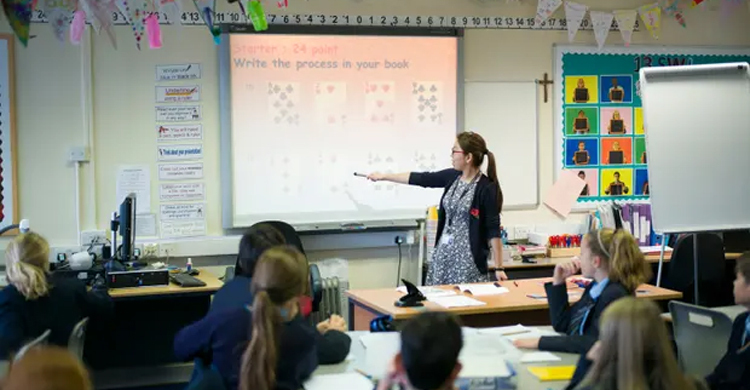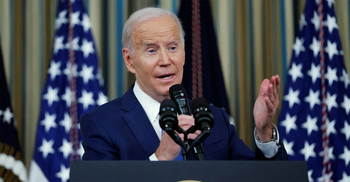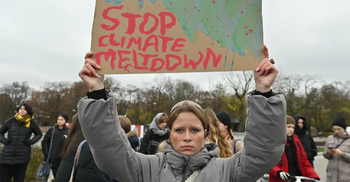Rishi Sunak to propose maths for all pupils up to age 18

Rishi Sunak will announce plans for all pupils in England to study maths up to the age of 18 to tackle innumeracy and better equip them for the modern workplace as he sets out his priorities for the year ahead.
In his first speech of 2023, the prime minister will expand on his ambitions for Britain amid concern from some Tory MPs that he lacks a big vision for the country and could be consumed instead by battling a series of crises around the cost of living, the health service and strikes.
He has already announced proposals for a new “baccalaureate”, replacing A-levels, during the Conservative leadership contest, which would see students continue with compulsory English and maths until 18, but sit fewer exams at 16.
No 10 sources suggested he would make further policy announcements in the central London speech, highlighting the economy, the NHS and small boats crossing the Channel as areas that he regarded as priorities for the remainder of this parliament.
However, Sunak’s decision to pre-brief an education announcement, rather than focusing on the state of the NHS this winter – with overcrowded A&E departments and long waits for a hospital bed, patients being treated in corridors, and 30-hour waits in ambulances outside hospitals – may be met with surprise.
Under Sunak’s plans, maths to 18 would be provided through different routes, rather than just A-levels. He was expected to say: “This is personal for me. Every opportunity I’ve had in life began with the education I was so fortunate to receive. And it’s the single most important reason why I came into politics: to give every child the highest possible standard of education.”
He will add: “Right now, just half of all 16–19 year-olds study any maths at all. Yet in a world where data is everywhere and statistics underpin every job, our children’s jobs will require more analytical skills than ever before. And letting our children out into the world without those skills is letting our children down.”
The policy would only apply to pupils in England, as education is a devolved issue.
Labour criticised the “empty pledge”, with the shadow education secretary, Bridget Phillipson, saying: “The prime minister needs to show his working.
“He cannot deliver this reheated, empty pledge without more maths teachers, yet the government has missed their target for new maths teachers year after year, with existing teachers leaving in their droves.
“Now, maths attainment gaps are widening yet Rishi Sunak as chancellor said the country had ‘maxed out’ on Covid recovery support for our children.
“Labour will end tax breaks for private schools and use the money to invest in 6,500 more teachers, including maths teachers, to drive up standards in this country.”
Geoff Barton, general secretary of the Association of School and College Leaders, called on the government to set out the evidence for extending maths for all students to the age of 18 before embarking upon a significant change affecting future generations, adding: “It is important that this is based on solid research and is not a pet project.”
The prime minister is expected to acknowledge that reforming the secondary education system will be tough – but will commit to starting the work of introducing maths to 18 in this parliament, finishing it should the Tories win the next election.
However, he was likely to be accused of rehashing old Conservative announcements. A report commissioned in 2011 by David Cameron and Michael Gove, then the education secretary, recommended that all pupils in English schools should study maths up to the age of 18.
The review, which was led by TV presenter Carol Vorderman, warned that the change was needed to give children the skills they needed for the workplace. But it was never implemented.
About 8 million adults in England have the numeracy skills of primary schoolchildren, according to government figures. Currently only around half of 16-19 year-olds study any maths at all, and the problem is particularly chronic for disadvantaged pupils, 60% of whom do not have basic maths skills at age 16.
Yet the UK remains one of the few countries in the world not to require children to study some form of maths up to the age of 18.
Source: The Guardian







